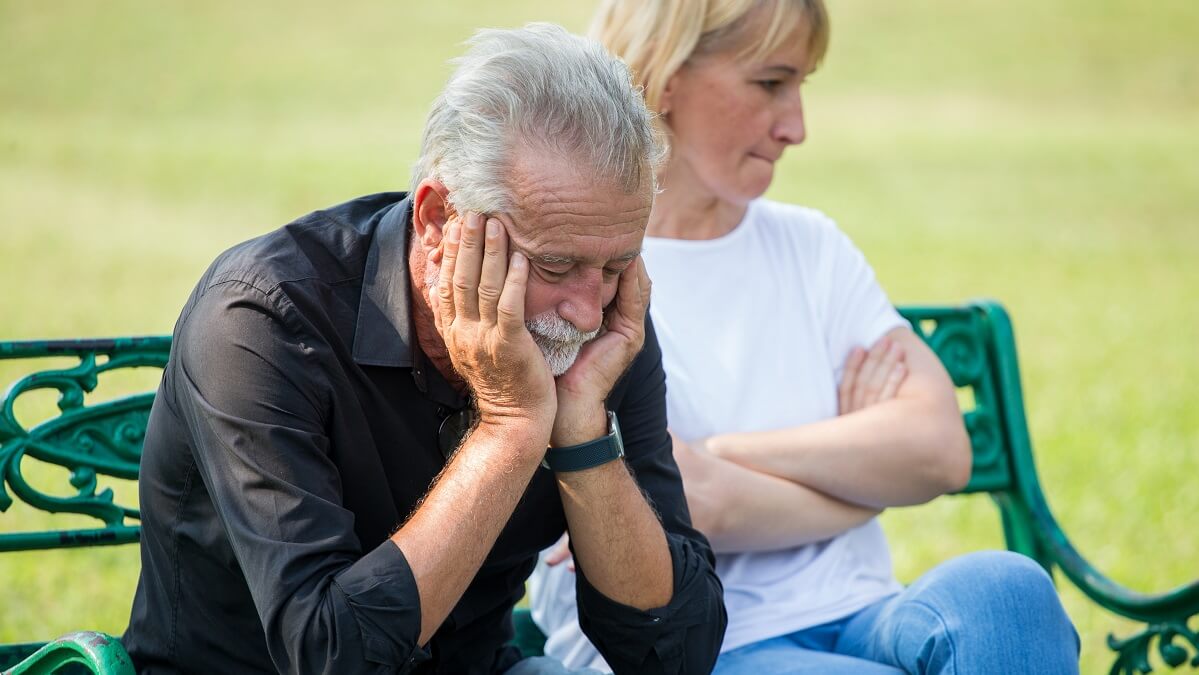Retiree Gaye Martin knows what loneliness looks like.
In her local area in Melbourne’s outer northern suburbs — where issues like access to transport and cost-of-living concerns can compound social isolation — the former aged care worker would often call elderly residents at their homes.
Sometimes, she would be their only visitor that week.
“When you go there, they’re just so excited,” she said.
“Some start crying because they haven’t seen anyone for a week … It’s just so, you know, it makes you cry, it’s so sad.”
She said it made her realise loneliness was no small problem — it could happen to anyone, and women were especially vulnerable as they aged.
“They’ve raised their kids, they’ve done all of these things … never asked for help from anybody, some of them.”
The 72-year-old grandmother was determined not to let that happen to her — and wanted to create an opportunity for others in her community too.
She got to work and started advertising — through word of mouth and on social media — an open-invite coffee catch-up, aimed at women 55 years and older.
At a Craigieburn cafe in Melbourne’s outer north, more than a dozen women — Gaye’s recruits — cheerfully greeted each other and took a seat.
Some were regulars, while newcomers were warmly welcomed and told to write their names and contact details on a piece of paper.
Many of the women attending the catch-up were retired, while others were living alone and unable to drive.
“I was lonely. I’d lost my husband, and I just needed someone to go out with,” said Colleen, who had been attending the gatherings for about a year.
“They’re really so much fun and I love it.”
Meanwhile, June lost her partner 12 years ago, and said the group had been a huge support during troubling times.
“It’s the best thing, we have laughs, we have jokes,” she said.
“I laughed that much, I cried in the end and the back of my neck ached.”
Ms White said more women were attending the weekly meetings than ever before.
She sometimes describes the group as “a family”.
“It’s amazing. I don’t even want to get paid for doing it. It’s so nice,” she said.
The group also holds larger meetings about once a month, and those digitally minded have an online group chat, where they arrange to meet, share stories and send jokes to keep the connection going.
If you or anyone you know needs help:
- Lifeline on 13 11 14
- MensLine Australia on 1300 789 978
- Suicide Call Back Service on 1300 659 467
- Beyond Blue on 1300 224 636
- Headspace on 1800 650 890
- ReachOut at au.reachout.com
Loneliness is on the rise
One-third of Australians feel lonely some or all of the time, with social isolation on the rise since the pandemic.
Loneliness has been linked to common chronic diseases, such as heart disease and stroke, depression, diabetes and dementia.
While there is limited data on social isolation in specific areas, Ms Martin is not the only one who has noticed it on Melbourne’s northern fringe.
The local deputy mayor, Naim Kurt said it often came up on the hustings during the recent local election campaign.
“I doorknocked something like 6,000 homes, and it was really surprising how many people were coming to us, inviting us into their homes for a coffee, telling us stories about how they lost their partner, how their children weren’t seeing them,” he said.
Cr Kurt said his council area of Hume, which took in suburbs like Craigieburn and Mickleham, was rapidly growing, and home to a significant and increasing culturally diverse population, including Victoria’s largest refugee cohort.
A culture of connection
At a community centre in the nearby suburb of Mickleham, nearly 30 kilometres north of Melbourne, another volunteer is doing her best to ensure migrants feel at home.
Gurdeep Kaur knows how hard it can be. When she first arrived from India in 2011, she felt isolated.
“I was not sure how to make friends here,” she said.
Ms Kaur recalled feeling “scared” and struggling to meet people in her new community.
“I was not open minded with them and I was always keeping [to] myself,” she said.
More than a decade on, Ms Kaur hosts monthly meetings, which attract up to 60 people, most of them from the local Indian community.
The sessions are mainly aimed at women and children but are also open to men in the surrounding suburbs.
Switching between Punjabi, Hindi and English, she starts off the evening with a talk on a topic of her choosing, often drawing on her experiences as a nurse.
“The main purpose is to get together, to give them a platform,” she said.
“Because especially for immigrants, there’s a huge gap of knowledge, even culture shock.”
Ms Kaur encouraged the group to get to know each other, share their experiences, and exchange contact details.
To finish the session, Ms Kaur got everybody up and dancing to end on a high note.
“They are cheerful,” she said.
“They are laughing like anything, they are out of stress … it makes me feel I have achieved something.”

